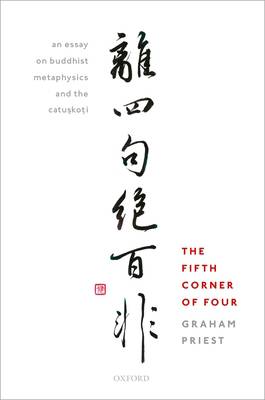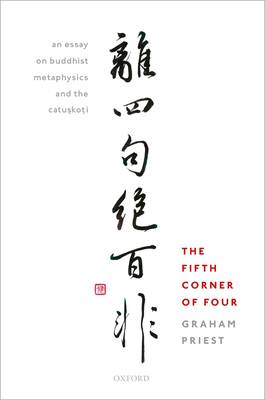
- Afhalen na 1 uur in een winkel met voorraad
- Gratis thuislevering in België vanaf € 30
- Ruim aanbod met 7 miljoen producten
- Afhalen na 1 uur in een winkel met voorraad
- Gratis thuislevering in België vanaf € 30
- Ruim aanbod met 7 miljoen producten
Zoeken
Fifth Corner of Four
An Essay on Buddhist Metaphysics and the Catu.Sko.Ti
Graham Priest
Hardcover | Engels
€ 156,45
+ 312 punten
Omschrijving
Graham Priest presents an exploration of Buddhist metaphysics, drawing on texts which include those of N�g�rjuna and D�gen. The development of Buddhist metaphysics is viewed through the lens of the catu.sko.ti. At its simplest, and as it appears in the earliest texts, this is a logical/ metaphysical principle which says that every claim is true, false, both, or neither; but the principle itself evolves, assuming new forms, as the metaphysics develops. An important step in the evolution incorporates ineffability. Such things make no sense from the perspective of a logic which endorses the principles of excluded middle and non-contradiction, which are standard fare in Western logic. However, the book shows how one can make sense of them by applying the techniques of contemporary non-classical logic, such as those of First Degree Entailment, and Plurivalent Logic. An important issue that emerges as the book develops is the notion of non-duality and its transcendence. This allows many of the threads of the book to be drawn together at its end. All matters are explained, in as far as possible, in a way that is accessible to those with no knowledge of Buddhist philosophy or contemporary non-classical logic.
Specificaties
Betrokkenen
- Auteur(s):
- Uitgeverij:
Inhoud
- Aantal bladzijden:
- 208
- Taal:
- Engels
Eigenschappen
- Productcode (EAN):
- 9780198758716
- Verschijningsdatum:
- 1/01/2019
- Uitvoering:
- Hardcover
- Formaat:
- Genaaid
- Afmetingen:
- 157 mm x 236 mm
- Gewicht:
- 476 g

Alleen bij Standaard Boekhandel
+ 312 punten op je klantenkaart van Standaard Boekhandel
Beoordelingen
We publiceren alleen reviews die voldoen aan de voorwaarden voor reviews. Bekijk onze voorwaarden voor reviews.











